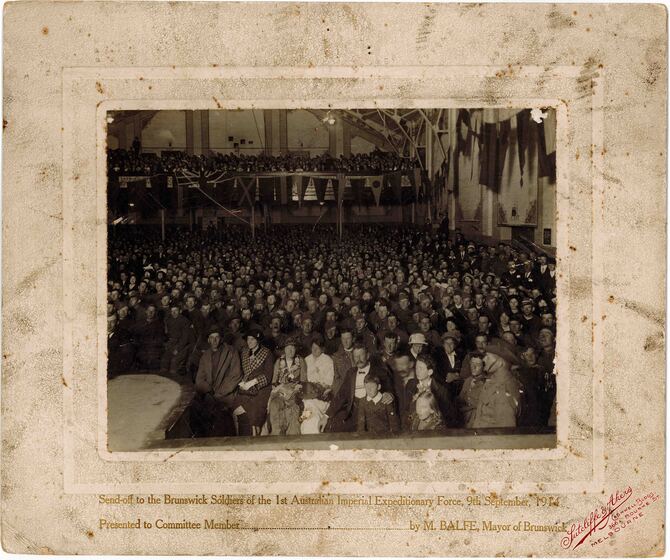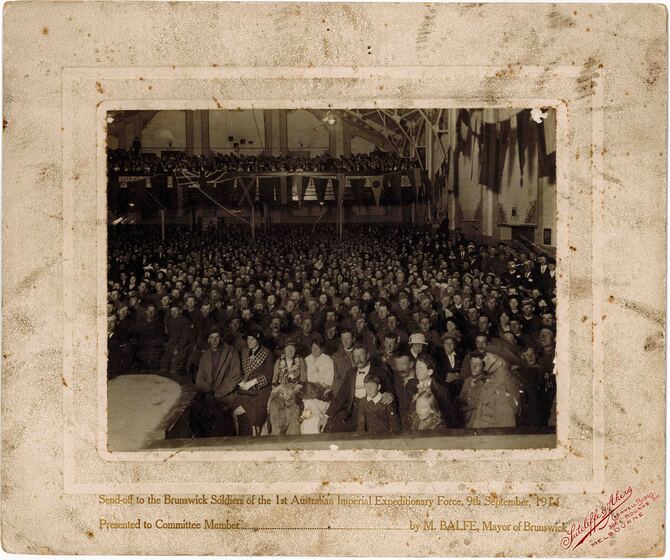Australia & World War One
Brunswick and Coburg were far removed from the battlefields of World War One, yet they were drawn into the conflict. The people and politics of these communities were transformed by the war – as would be the case across Australia.
When Australia was declared at war in August 1914, popular enthusiasm for the military endeavour was high. In the first six months more than 50 000 Australians enlisted, confident that the War would be short and they would soon be back home.
Attitudes started to change as reports came in of mounting casualties, including the deaths of many known to the community.
At the same time, as casualties mounted, military and political leaders called out for more soldiers. Conscription started to be raised as a possibility. In August 1916, Prime Minister William 'Billy' Morris Hughes announced himself in favour of conscription, and committed to holding a referendum on the issue.
The political consequences of this decision were dramatic. The Australian Labor Party split over the issue. Although the ALP had only returned to office in 1914, they were out of government again by the end of 1916. Instead Prime Minister Hughes and 23 fellow Labor members joined with Liberals to form a new conservative government. The ALP would remain out of power for a decade.
















